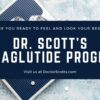What is the largest organ of your body? It’s not something inside you, but something all over you. It’s your skin! We don’t often think of our skin as a vital organ of our body, but it is the first layer of defense between your internal workings and the environment around you. Your skin also regulates your body temperature and gives you a sense of touch.
November is National Healthy Skin Month. This month is the perfect time to evaluate the care of your skin. What are you doing to keep it healthy?
Protection
Even if you have not taken care of your skin before, it’s never too late to prevent further damage and protect what you have.
- Wear helmets or knee or elbow pads when skating or biking.
- Take care when cooking and baking not to burn your skin.
- Protect your skin from the harmful rays of the sun. This can be done through sunscreen, hats, or staying in the shade especially when the sun is at its peak in the sky.
- Stay out of the tanning bed. Its light harms your skin, too.
Prevention
- Put out the smoke. Smoking ruins collagen and elastin which is what keeps your skin taught and firm.
- Moisturize your skin. Be careful not to use heavily perfumed soaps that strip your skin of its natural oils. Be gentle when toweling off after a shower. Give the water from your shower a chance to soak into your skin to keep it moist.
- Eat a plant-based, Paleo diet. Cut out dairy, gluten, sugar, and excess alcohol. These food cause
 inflammation in the body which can wreak havoc on your hormones and show up on your skin. Eat more greens, clean protein, and healthy fat. These foods will give you the ideal balance of nutrients, antioxidants, cellular-level building blocks (fats), and cellular fuel (protein) to keep hormones balanced and skin healthy. Dietary supplements can make up for whatever is lacking in your food intake. Need help knowing what supplements are best? Click here to contact Dr. Scott and ask for his list of top-rated supplements to show your skin some love on the cellular level. Don’t forget to include lots of drinking water in your day which takes the nutrients to your skin.
inflammation in the body which can wreak havoc on your hormones and show up on your skin. Eat more greens, clean protein, and healthy fat. These foods will give you the ideal balance of nutrients, antioxidants, cellular-level building blocks (fats), and cellular fuel (protein) to keep hormones balanced and skin healthy. Dietary supplements can make up for whatever is lacking in your food intake. Need help knowing what supplements are best? Click here to contact Dr. Scott and ask for his list of top-rated supplements to show your skin some love on the cellular level. Don’t forget to include lots of drinking water in your day which takes the nutrients to your skin. - Stress can lead to skin breakouts. Take care to evaluate your life and pinpoint areas of stress. Take steps to reduce the stress or find healthy outlets for managing it.
- Notice any unusual bumps or moles? Have them checked by a dermatologist especially if the color or shape has changed. This can be a sign of some types of skin cancer.
- Find out how your hormones are affecting your skin. Not everything about your skin can be seen by the naked eye. Dr. Scott offers a skin health blood test which can accurately and simply give you a clear picture of your particular hormone levels and what each level means for your skin.
Aesthetics
It’s not all about vanity. It’s about maintaining the health of your largest organ! Many new procedures and products help provide better pathways for the absorption of vitamins and other nutrients vital for building collagen which improves texture, color, moisture, tone, and more.
- Microneedling can be used in combination with vitamin and nutrient-rich serums. Microneedling isn’t just a fad. There is solid science showing the benefits! Most clients see results after the first treatment! Here’s a great video explaining how it works.
 If you REALLY want to ramp up results, you might consider a treatment that utilizes Platelet Rich Plasma (PRP) this is a “must-have treatment” for many celebrities like Kim Kardashian. It combines microneedling with platelets derived from your own blood. There is also the PRP FaceLift which combines filler with PRP which is injected beneath the skin surface to replace areas that have lost volume. It also increases collagen production, smooths wrinkles, and improves texture, color and tone.
If you REALLY want to ramp up results, you might consider a treatment that utilizes Platelet Rich Plasma (PRP) this is a “must-have treatment” for many celebrities like Kim Kardashian. It combines microneedling with platelets derived from your own blood. There is also the PRP FaceLift which combines filler with PRP which is injected beneath the skin surface to replace areas that have lost volume. It also increases collagen production, smooths wrinkles, and improves texture, color and tone.- Fillers are not just for plumping! Proper use of fillers can actually help you have healthier skin by replenishing the hyaluronic acid (HA) that your body naturally produces. HA is responsible for delivering and maintaining moisture and nutrient levels in skin cells. Over time your skin’s ability to manufacture its own HA diminishes. JUVÉDERM® is an example of a smooth gel filler that is made of cross-linked hyaluronic acid particles. Restylane is another filler shown to stimulate collagen growth, not because of the actual filler, but because of the spreading of the collagen fibers induced by the injection into the skin. Also, HA provides continuous moisture to the skin by binding up to 1000 times its weight in water!
Dr. Scott and Your Skin
There are so many recommendations for healthy skin. Which ones should you implement first? Dr. Scott can help you create a personalized plan to keep your skin feeling, functioning, and looking healthy. Give the office a call to set up an appointment today!





